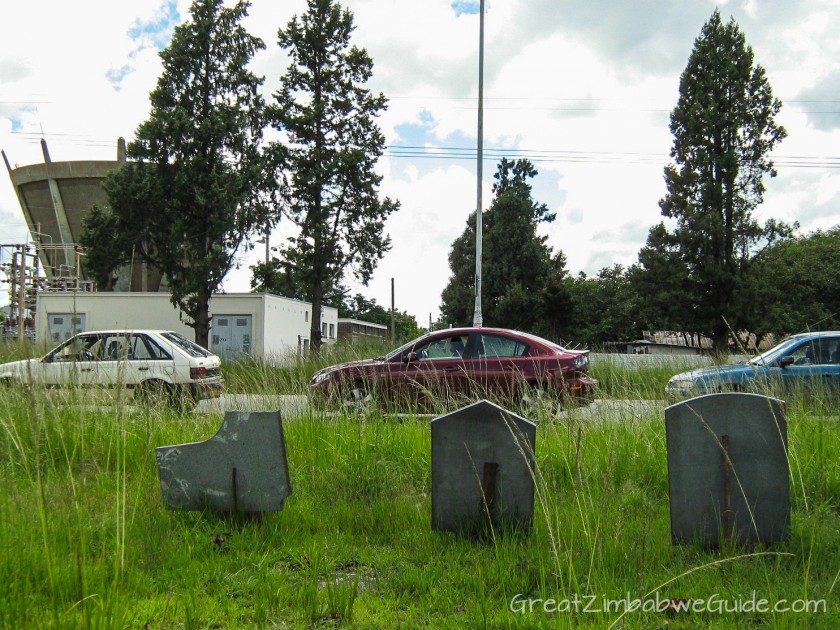
Former Zimbabwean President Robert Mugabe has died aged 95. He was a well-publicized figure, even in Western media. I lived under his rule for much of my life and I feel unable to freely express my opinion about this man, even after his death. When he was in power, he engineered such a system of fear that ordinary people hardly dared mention his name in public. That paranoia still lingers in the hearts of many Zimbabweans. This article discusses some of the nicknames that Zimbabweans gave to Mugabe.
(And yes, this is still a travel blog, but occasionally I write about non-travel issues on this platform. Names of interviewees have been changed.)
The closest I came to Robert Mugabe was when his cavalcade passed us by. I was twelve, bundled up in my sober grey and blue uniform. We were driving down Churchill Avenue (still named so to this day) in the green Harare suburb of Highlands, not far from the Zimbabwe Broadcasting Corporation offices. I remember looking at the tall tower of the ZBC, or the DeadBC, as it was was sometimes called, just before the cavalcade came.
I heard him first, with the screeching of screaming sirens like a frenzy of mosquitoes. Police-car sirens, ambulance sirens and fire-engine sirens. And the constant hooting of a gaggle of Mercedes cars. “Hold on,” said my mother, with an almost-bored expression in her eyes. She pulled over to the side of the road and looked in her rearview mirror. Five motorbikes growled past, a fire engine following. Then an ambulance and an army truck filled with gun-toting, wall-faced soldiers. A mass of five, ten gleaming black Mercedes’ appeared behind us, engulfing the entire road, lights flashing. As the cars zoomed past me, race-car fast, I tried to see into the blackened windows and guess the car in which the President was hiding. Was he looking back at us behind the darkened glass? I pretended that the cavalcade was a sort of game he liked playing with us, a ‘cup and balls’ trick. Ten cups upside down on a table, ten Mercedes’ driving past, and one ball, one president, hiding. But in this cavalcade game, no-one ever won. Not even the President. I wondered if even he lost track of which guise he was meant to be using.
Robert Gabriel Mugabe was revered by many and feared by more. Our former leader was often seen, but from a distance: his portrait was displayed in every office and school in the country. But his actual name was mentioned rarely: in private gatherings among people of trust only. The constant stories of political thuggery, abductions and network of intelligence transformed the spoken name of Mugabe into a conversational no-fly zone.
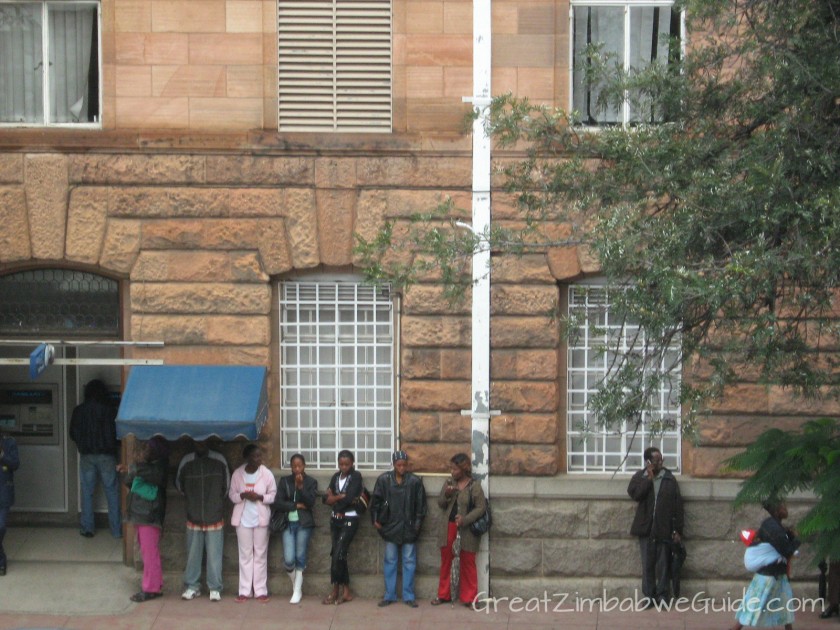
Nyasha is smiling widely, mocking the evil grin of a comic-book villain. “There are people planted everywhere,” she says, of the spies working for the government. “Nowhere is safe.” Nyasha is studying for a Business Science degree in Cape Town, but she returns to Zimbabwe for vacation. Her time in Cape Town hasn’t diminished her typically Zimbabwean sense of humour: an ‘if you don’t laugh at it you’re beaten by it’ attitude. “Everyone was told to shut up [about Mugabe],” says Nyasha. “The CIO (Central Intelligence Organisation) was everywhere. It was very difficult to speak your mind and express yourself,” she says. Perhaps this is why Zimbabweans usually spoke about their former leader through the lens of sarcasm and satire. And we didn’t call him by his real name, because there was always the fear that someone was listening.
If you type the word ‘Mugabe’ in a document, the spell-check will suggest ‘Mug Abe’. Some Zimbabweans called him this. To friends only, in private, of course. “Did you hear about Mug-Abe?” I suppose it could be seen as a form of quiet rebellion, not saying his full name. But mostly, we just called him ‘Bob’. Because we fooled ourselves into thinking we couldn’t be scared of someone called Bob. That our country was sometimes referred to as ‘Zim-Bob-we’ shows the extent to which it was the President, not the people, who defined our homeland.
Many people also called the 95 year-old ‘Kamudhara’ which means ‘old man’ in chiShona, and it was a name that was obscure enough that if the CIO was listening to your telephone conversation (which is legal under the Interception of Communications Act of 2007), they couldn’t prove which old man you were talking about. To this day, in the comments of internet news reports and social media posts, you’ll be able to see that the many nicknames for Robert Mugabe are alive and well.
Since independence in 1980, Zimbabwe’s constitution and laws have been re-engineered to secure the president’s position and stifle freedom of expression. When presented to the public, these amendments were hidden under the banner of giving a better life to all Zimbabweans. The police force was built up, with special attention being paid to young recruits. As Mugabe’s power solidified, freedom of expression deteriorated. Journalists started disappearing and local newspapers were closely monitored for anti-governmental reports. The 2002 Presidential Elections, which saw Mugabe take a 56-42% win over Moran Tsvangirai, were sullied by accusations of mass intimidation and vote-rigging. I remember the atmosphere at the time: everyone was hopeful, expectant. People stood in queues for hours in the hot sun, telling themselves that their votes would bring change to the country. In vain. The intimidation continued: journalists who filmed MDC activists being beaten up by police were found dead just days later.
Before Mugabe took residence in State House, he lived in the Harare suburb of Mount Pleasant. This is a well-known area to me: near this house is a small shopping centre where there used to be one of the best steakhouses in town. Across the road from the shopping centre is the city’s largest BMX track, where you could watch bikers flying across jumps until the late hours of the night. A few years later, another addition was made to the President’s collection of residences: a high-walled mansion in the upper class area of Borrowdale Brook. Apart from the security cameras and armed guards, the most noticeable aspect about this house was that the road leading to it was perfectly smooth. Most roads in the capital are potholed and balding, but the causeways connecting State House and the Borrowdale mansion were regularly graded and re-tarred for their special cargoes inside the limousines and Mercedes.
Rebecca is a ballet dancer, dark-haired and slight, born in Zimbabwe but now living in the neighboring country of South Africa. She talks about her unease when talking with her parents on the phone in Zimbabwe. “You could actually hear the phone click, almost as if someone had pressed a button and started listening to you,” she says, of the tapped telephone calls. Sometimes phone conversations were accompanied by a backing track – a deep breathing of someone whom you didn’t know – someone just checking that you aren’t saying too much. “People were too scared to go into details [on the phone]. My parents just told me that they were surviving and no more…any wrong word could affect your entire family,” Rebecca says. “You had to be very careful who you spoke to in the country – and in South Africa.” Such secrecy and fear cast a shroud around Mugabe – one of mystery and uncertainty, seemingly impenetrable. “You never knew what was true and what was false,” she says.
Rebecca has her own theories about the reasons behind Mugabe’s repression of free speech. “He knew someone was out to get him, and that he could have faced a fate like Saddam Hussein’s.” she says. He faced opposition from all directions. The Zimbabwean electorate rejected a 2000 referendum which would have increased Mugabe’s powers even more, and this rejection displayed that his popularity was waning. He caught his own Zanu-PF generals plotting a coup against him in February 2007 – three of whom subsequently died in the space of a month. As the MDC gained popularity both at home and internationally, and the country’s economy broke down, even his most loyal supporters turned against him, to the point where he was forced to step aside in 2017.
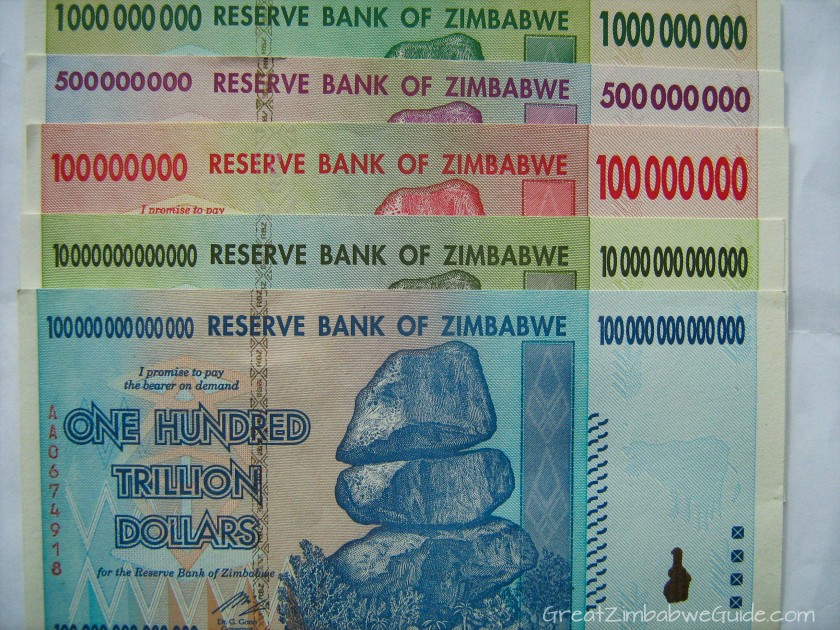
Perhaps the little nicknames that we created for our former President like ‘Bob’ and ‘Kamudhara’ gave more of an insight into the man than the name “Robert Mugabe”. An online Zimbabwean news site Zimdaily alleged in April 2017 that ‘Mugabe’ was not actually the former President’s real surname. The site, quoting a relative of Mugabe’s, stated that Mugabe’s father was not Zimbabwean but an immigrant from Malawi, and that his name was Masuzyo Matabili. When Robert’s father, Matabili, left the family for a new life in Bulawayo, Robert took the ‘Mugabe’ surname from his mother’s side of the family. That Mugabe’s father left the family in the 1920s is well-known, but the allegations about his original name are difficult to prove, partly due to state restrictions and also due to the fact that many Africans weren’t given birth certificates in Zimbabwe until the 1960s. Proof or not, some Zimbabweans referred to their former leader as “Mr Matabili or “Robert ‘Matabili’ Mugabe” derogatorily, to signify his otherness. The story caused an outcry and portrayed Mugabe as a hypocrite: Mugabe had denied people the right to vote unless both of their parents were Zimbabweans. He has also accused people with non-Zimbabwean parentage as ‘totemless’, an insult to their heritage and ancestry.
Tinashe is opinionated, disillusioned and immensely critical of Mugabe’s policies. Yet the very first thing Tinashe says is: “Did you know his [Mugabe’s] first son died while he was in prison? His son was three and Mugabe wasn’t even allowed out of jail to attend the funeral.” Tinashe shakes his head. “His sister said it was the first time she saw him cry.” Whenever I see a photo of Mugabe I examine his eyes: they are a watery blue colour. The only black Zimbabwean I have met with the same eye colour is a woman named Mary, who lived with us in Harare and who often looked after me as a child. I saw Mary cry many times (death is always near in Zimbabwe), and now I try to imagine what Mugabe would have looked like with tears in his blue eyes. Mugabe: a man oppressed to such an extent that he was prevented from mourning the death of his first-born.
“People outside of Zimbabwe talked about Mugabe a lot more than people in Zimbabwe,” says Tinashe. “That’s where fear came into it. Obviously the urban people did not like him, but in the rural areas there was a very different viewpoint.” Tinashe says that some of his relations in the rural areas used to call Mugabe ‘The Illustrious Son’, a term of respect and honour given to African leaders such as former Ghanaian President Kwame Nkrumah and former United Nations Secretary-General Kofi Annan. Other stories Tinashe has heard include tales of a power-mad, ruthless man who murdered his fellow liberation-struggle leader Josiah Tongogara in order to eliminate all threats to his power. A play was written about this legend: called Breakfast with Mugabe, it is a Macbeth-like tale in which the spirit of the dead Tongogara haunts an increasingly paranoid Mugabe, who becomes more irrational and unpredictable as his demon torments him.
Perhaps the Zimbabweans who have been suffocated the most are the Ndebele people. The two dominant ethnic groups in Zimbabwe are broadly split into Shona-speaking people (to whom Mugabe belongs), and Ndebele people, a smaller grouping which lives mainly in the south of the country (Matabeleland). Tensions between the groups came to a head in 1981 when Mugabe dismissed the Ndebele leader Joshua Nkomo and his aides from parliament. What followed was a ruthless massacre of the Ndebele population: some report that the deaths were in the region of 20,000 people. Mugabe called it Gukurahudi, which is the Shona description for the cold, cleansing wind that comes before a storm. In Zimbabwe there is a silence around the issue of Gukurahundi; another topic that Zimbabweans view with paranoia.
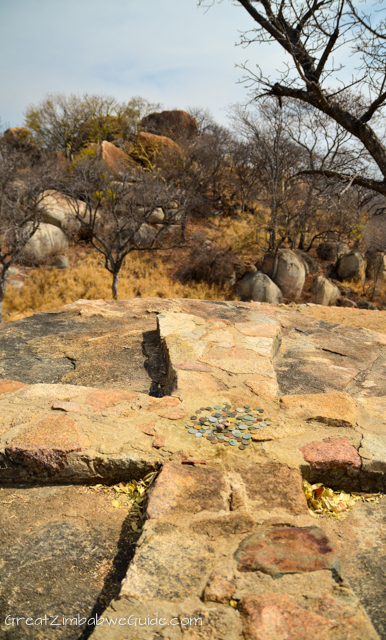
“I hated him. I really hated him in that deep corner of my heart. The other day I sat down and asked myself why I feel so strongly about it. I think maybe it’s because of what he did to the Ndebeles and everything. But I think it’s a genetic thing too, even my father hated him.” Thabani* comes from Bulawayo, the capital of Matebeleland. He says that he doesn’t know anyone in his Ndebele community who supported Mugabe; that he only saw people on TV involved in what he saw as blind adoration for the former president. Thabani doesn’t see Mugabe as a liberation hero at all, but as someone who let a country crumble beneath him. There is no nickname for Mugabe in the Ndebele language, according to Thabani. Perhaps Gukurahundi silenced the Ndebele people to the extent that even allusions to Mugabe were too risky.
Kuda used to be a journalist in Zimbabwe. He recalls that a colleague of his had a special way of referring to Mugabe, one that needed no sound at all. The colleague would merely raise his index finger so that it rested on the centre crevice of his top lip. Mugabe’s well-known moustache – the thin line of hair running from the inner line of his nostrils to the bow of his lip – was enough to identify him without a word being spoken. His facial hair was perhaps purposefully reminiscent of the style that Hitler adopted. The press sometimes referred to him as an African Hitler, and perhaps Mugabe’s moustache was his way of mocking his critics. And if it happened to scare a few people in the process, all the better.
Kuda says the rural areas of Zimbabwe (where the majority of the population lives) only had access to state controlled radio broadcasting, until recently. “The people in the rural areas obviously saw him as a liberator,” says Mike. “Also, people in the rural areas were not exposed to the same kind of struggles that people in the urban areas faced. The rural areas have always been poor.” This opinion is shared by Nyasha and Tinashe.
“[People in the rural areas] told themselves that he had a vision, that it takes suffering today to have good tomorrow,” says Nyasha. Scarcity of running water, food and electricity had always been part of their daily reality, whereas people in the cities feel the effects of infrastructure breakdown far more acutely.
Adoration of Mugabe was not only found among the rural poor: the African diaspora contains a large amount of people who trusted in Mugabe’s long-term plan of restoring Zimbabwe. In 2007, when Zimbabwe’s economy was in tatters, London-based magazine New African did a readers’ poll of “Greatest Africans of All Time” and Mugabe was placed third , above Martin Luther King and Kofi Annan. Is that how he will be remembered: one of the greatest Africans of all time?
Among his supporters, there were traditional names that Mugabe retained. Names of respect and honour. ‘Gushungo’ is a name based on his surname and his adopted totem (a symbol of lineage and ancestry). The pop song Gushungo by Zimbabwean artist Hosea Chipanga, written for and dedicated to Mugabe, portrays a man punished for other people’s sins, echoing Mugabe’s message that foreign sanctions were to blame for his country’s bankruptcy. This same singer wrote another song about a king who died on his throne after his people begged him to retire. The singer received death threats for performing it, however.
Karigamombe is another praise-name given to Mugabe, meaning ‘the one who defeats the bull’. It is his Chumurenga (Zimbabwe’s liberation struggle) name or nom de guerre. The name ‘Karigamombe’ was used by praise singers and is built around a song describing a small cockerel killing a bull. Thus Mugabe was also affectionately called ‘Jongwe’ meaning ‘cockerel’. In the 1979 elections there was strong competition between Mugabe’s party of Zanu-PF, with a cockerel as its symbol; and PF-ZAPU, which had the emblem of a bull. When Mugabe’s party won, they too became known as Karigamombe. The Zanu-PF headquarters in Harare is one of the most recognizable buildings in the city’s skyline: the building is capped by a black triangular granite block picturing the cockerel emblem.
When Mugabe became Prime Minister in 1980 a man preaching forgiveness and education took the Zimbabwean throne. He was a Law graduate and a Master of Economics. He was awarded with honorary degrees from three international universities in the 1980s, one of which, the University of Massachusetts, said in the awards ceremony: “Your gentle firmness in the face of anger, and your intellectual approach to matters which inflame the emotions of others are hallmarks of your quiet integrity. We salute you for your enduring and effective translation of a moral ethic into a strong, popular voice for freedom.”
Mugabe showed a softer side when he was with his first wife, Sally. Everybody remembers her, the perfect First Lady. She visited children’s homes and started charities, she was gentle and warm, she was beautiful. To Rebecca, Sally was the one testimony of Mugabe’s humanity. “When I was little, all the other girls used to call their dolls Sally, after her. Everyone venerated her,” says Rebecca.
In primary school, my class visited Heroes’ Acre, the burial ground for Zimbabwe’s liberation fighters. It is set high on a hill outside Harare, and all of the graves are marked by thick marble headstones. I remember sitting in an enclosure in the centre of the memorial eating sandwiches with my schoolmates, the wind howling through the tombstones. This enclosure is where Sally is buried. We were just old enough to read, and when one little girl next to me saw Sally’s headstone she ran to the grave and started crying, even though she had never met the former First Lady. The girl bent over and wrote with her finger in the dust-coated marble with big, rounded handwriting: “RIP Sally”. I doubt now that small children will cry over the grave of Robert Mugabe with the same tenderness.

By 2001, it was difficult to believe that the man who had preached forgiveness at Zimbabwe’s independence was the same man who said, “Our party will continue to strike fear in the hearts of the white man, our real enemy.” Jill is a mother of three, who left the country in 2001 and now helps teach drama to jail inmates. She met Mugabe in 1988, and says, “He was very impressive, interested, and asked good questions … we were rather in awe of him.” Jill charts the changes in emotions she has had for Mugabe over the years; from the optimism and hope she felt in 1980 to the sense of betrayal and fear in 2000 when white-owned farms were ransacked without control.
Robert Gabriel Mugabe. A man with many names; many masks. A small boy from a broken family. A man who taught Maths and English to his prisonmates in the ‘60s. Married to the sweetheart of the nation, and then tied to a ridiculed secretary. On television during the height of his power, he was a man waving his fist, swearing vengeance. That same fist held the country that I love. It was a fist that has remained strong for 37 years until it was unclenched by force. He was enigmatic, wily and unrepentant, and as such, he was impossible to predict.
The Old Man; Kumadhara; Karigamombe; Gushungo; Bob. Now that Mugabe is being laid to rest, perhaps Zimbabweans will finally be free to call him whatever they want. Perhaps they will be free to talk about their government without looking over their shoulders. Sadly, I don’t think this is the case. His legacy of fear is not dead yet.
Follow Great Zimbabwe Guide on Facebook or Instagram:![]()
![]()





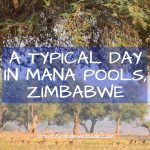





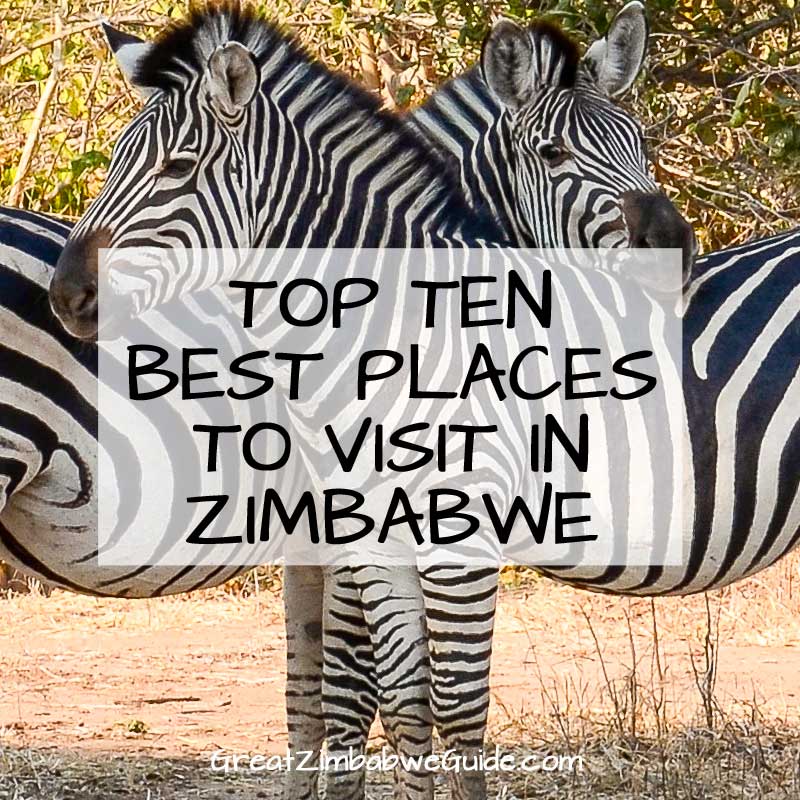


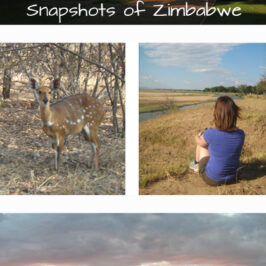

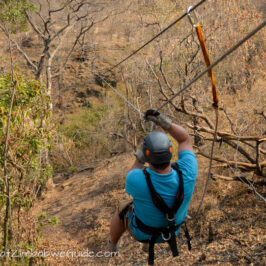
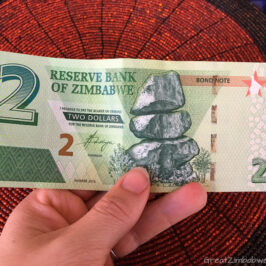

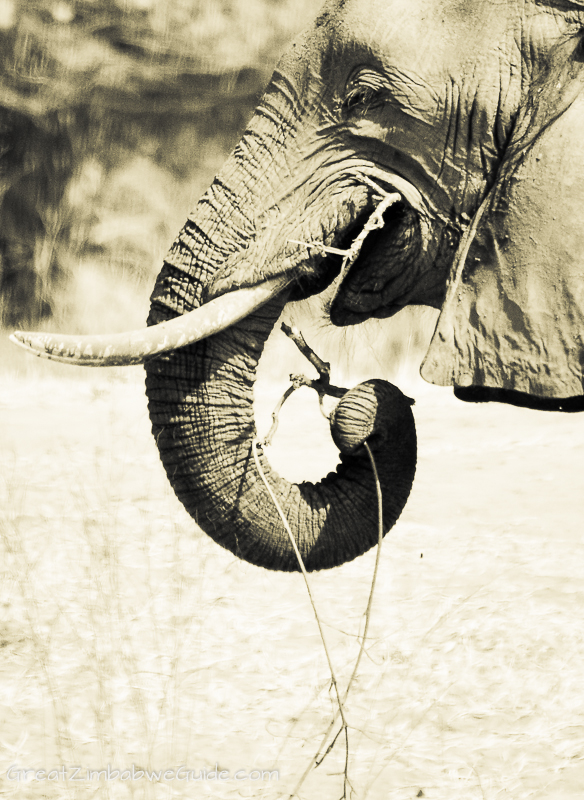
Leave a Reply